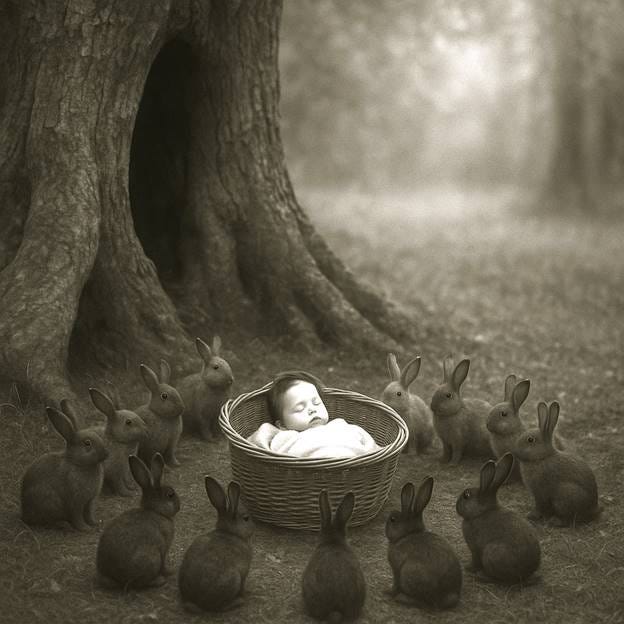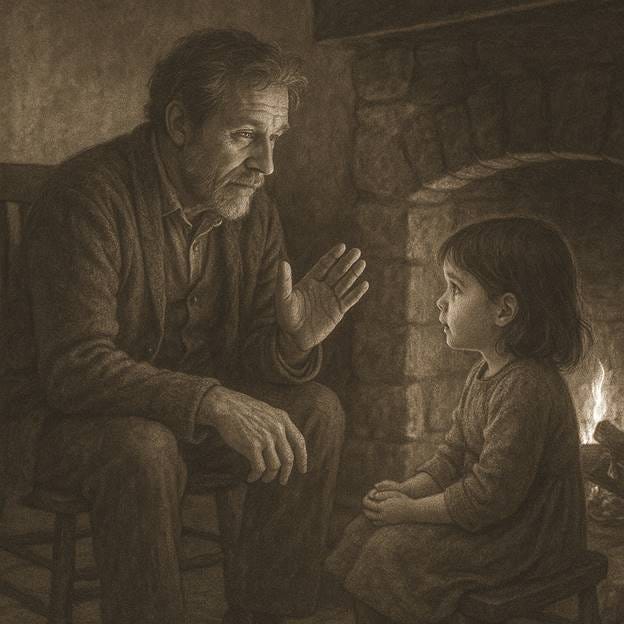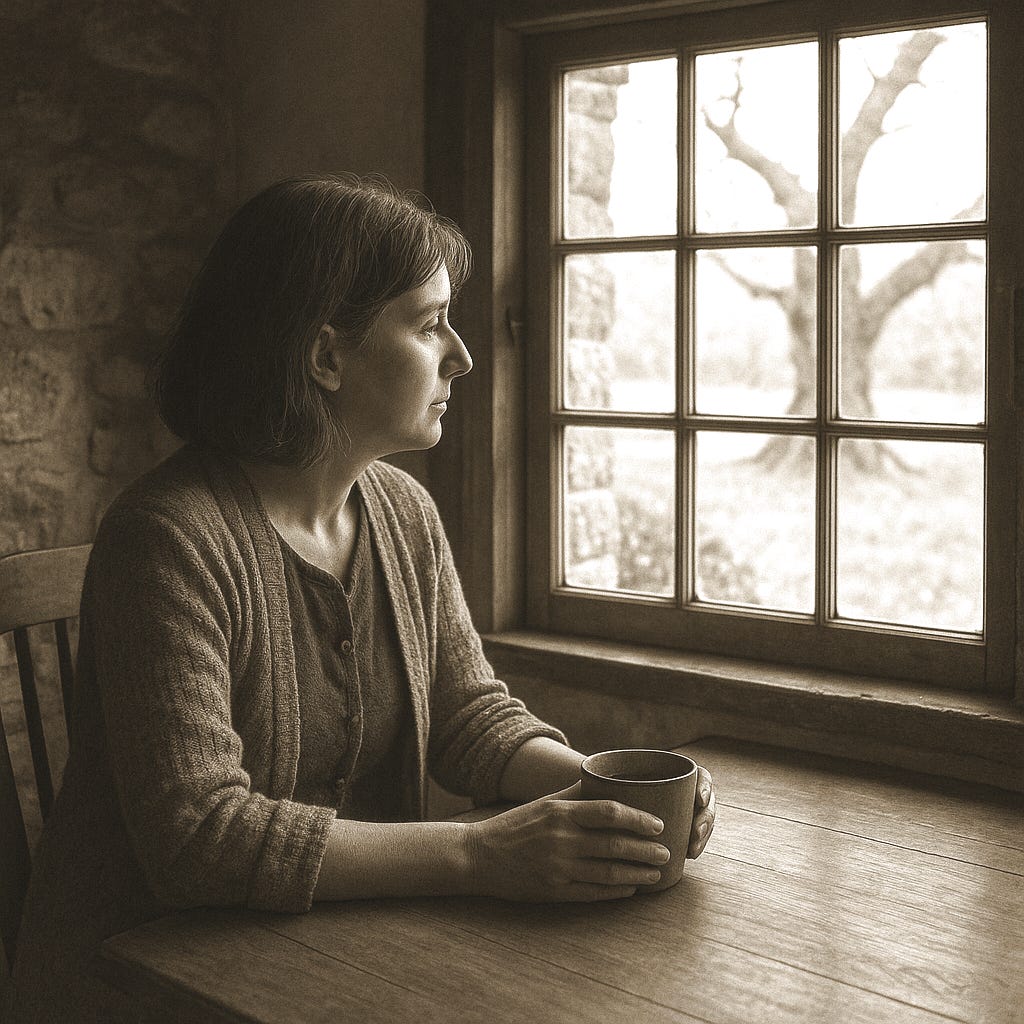Prelude: Miriam and the Thirteen Rabbits
Morning light slanted through the warped glass of the cottage window, laying a soft lattice across the table where Miriam sat with her cup of tea. The steam rose in thin spirals, curling toward the beams overhead, as if reluctant to leave. Outside, the yard was still, the grass silvered with dew, the air cool enough to keep the world hushed for another hour.
She had lived in this cottage all her life. Stone walls weathered by rain, shingles gone mossy in the shaded corners, oak roots pressing at the foundation as if to remind the house it was a guest of the forest. To Miriam, it had never felt temporary. It was less a home than an extension of herself, as if she had been planted here and grown up with the same inevitability as the trees.
She sipped her tea and let her gaze travel beyond the yard, toward the dark silhouette of the hollow oak. Its ancient trunk still stood, through storms and long winters it lived on. She had always thought of it as a sentinel, the silent witness of her father’s story.
She had been three or four, curled by the fire, when she first asked why she did not have a mother like the other children. Silas had leaned back in his chair, shadows from the hearth flickering across his lined face, and told her the tale he never quite told the same way twice.
“You weren’t born like the others, Miriam,” he said. “I found you under a blue moon.”
He spoke of a spring evening long ago, when he wandered near the hollow oak and saw thirteen rabbits arranged in a circle, their eyes gleaming like embers. Some broke rank and hopped toward him, pausing as though to beckon. He followed.
At the foot of the tree was a basket. Wicker, weathered, lined with linen. And in it, an infant, asleep. Quiet as a prayer.
“You,” he said, with the firelight caught in his eyes. “You were so still, I thought the whole grove had stopped breathing just to hear your dreams.”
He picked up the basket. The rabbits then followed him all the way home, their paws silent on the path, before scattering back into the undergrowth at his threshold.
Miriam had listened then with rapt attention, half believing, half wishing it to be true.
Now, decades later, sitting with her tea, Miriam let the memory rest in her like another kind of warmth, part of the daily rhythm of her life. The hollow oak still stood. And though she never saw the rabbits again, sometimes the stillness of the morning seemed to her like a circle of guardians, waiting and watching just out of sight.
She finished her tea, rose to prepare for work at the library, and carried that old story with her into the day - as if it were not only hers, but a key to something the world had not yet told her.








And, of course, I counted the rabbits, noting that there were indeed 13, but also noting that the last one I counted was lighter in color. And then I wondered: why 13? And was the 13th from another family of bunnies?